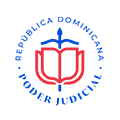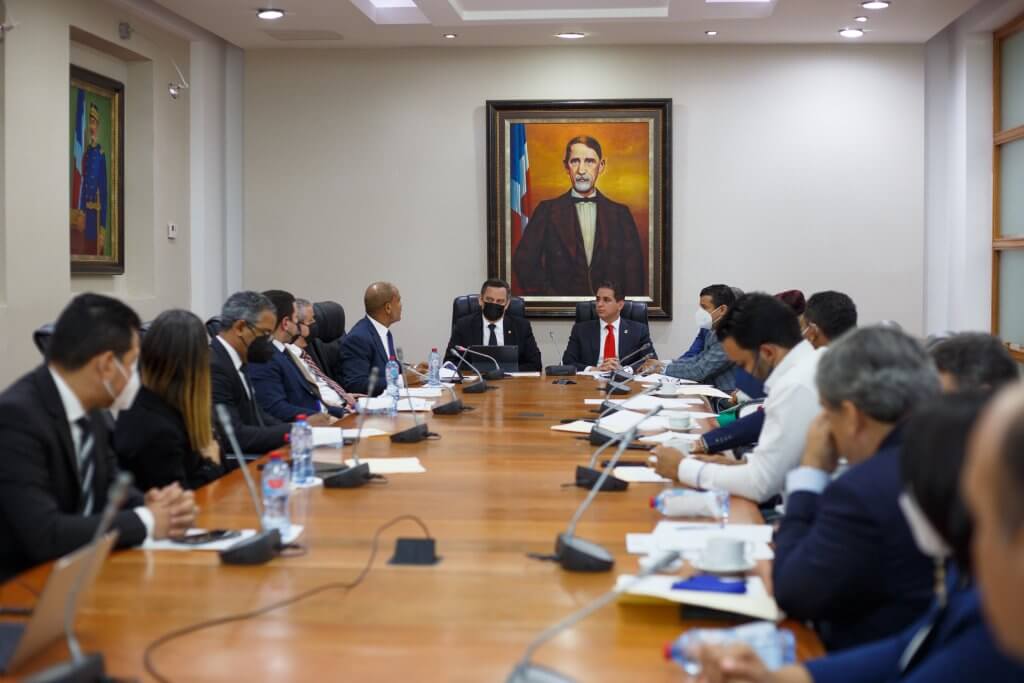The Legislative Agenda Commission of the Supreme Court of Justice (SCJ), headed by the president of the SCJ and the Judicial Power Council (CPJ), Luis Henry Molina Peña, met this Monday with the Special Commission of the Chamber of Deputies that is hearing the proposed Law on the Use of Digital Media in the Judiciary. The purpose of this bill is to establish the principles and guidelines that allow the use of digital media in the judicial environment, without affecting the current procedural rules.
Molina Peña was accompanied by the judges of the Supreme Court of Justice: magistrate Justiniano Montero Montero, judge of the First Chamber and magistrate Rafael Vásquez Goico, judge of the Third Chamber.
In addition, the secretary of the Supreme Court of Justice, César García Lucas; the general coordinator of Communications and Public Affairs, Javier Cabreja; the director of Public Policies, Rosaura Quiñones; the executive coordinator of Transformation Projects, Moisés Jáquez and the assistant attorney of the Presidency of the Judiciary, Wilmer Espinosa.
While the Special Commission of the Chamber of Deputies, chaired by Deputy Victor Fadul, is composed of legislators Alexis Jimenez, Emil Duran, Elias Wessin Chavez, Brenda Ogando, Danny Guzman, Ignacio Aracena, Juan Dionicio Restituyo, Magda. Rodríguez Azcona, Tobías Crespo, Rogelio Genao, Dulce Quiñones, Santiago Vilorio, Amado Antonio Díaz and Rafaela Albuquerque.
At the beginning of the meeting, the president of the SCJ assured that the bill toThe bill on the use of digital media responds to the need to ensure access and take advantage of the media that have been made available to lawyers, attorneys and citizens in general due to the pandemic.
"The fact that today we can better understand Covid19 should not set back the possibilities we achieved, which had already been projected in the strategic planning of the Judiciary. Let us take care of the progress achieved that deserves justice and its internal and external auxiliaries".
Judge Montero Montero explained during the presentation that this proposal responds to the indispensable need for speed and procedural economy in all judicial actions.
The draft Law on the Use of Digital Media in the Judiciary includes cardinal principles such as speed, optionality and standardization of the services provided by the Judiciary, under the constitutional commitment set forth in Article 69 of the Constitution.
The project is divided into five chapters, aimed at enabling digital platforms in the administration of justice services, notifications by digital means, digital signature and virtual hearings. This, contemplating the principles of efficiency, effectiveness and coordination in judicial management that invite the use of technology as an instrument to facilitate the interaction between the Judiciary and its users.
The use of digital media provides more options for users of the justice administration system: it facilitates access, expands the possibility of carrying out procedures from anywhere and allows for faster responses to requests.
The strengthening of the administration of justice through digital media involves technological tools and solutions to make the operation more agile and secure. In addition, it implies public access to online data of all justice services and contributes to transparency in Justice, due to the traceability of the course of cases, from its entry until the end of the process.
The Constitutional Court ruled, last September 14 by means of sentence TC/286/21, that virtual judicial services should be regulated by law, without annulling the processes held. In compliance with the Dominican constitutional order and the aforementioned sentence, the Judicial Branch opted to present the Proposed Law on the Use of Digital Media in order to maintain the advances obtained in the justice system during the last months.

















